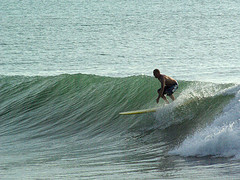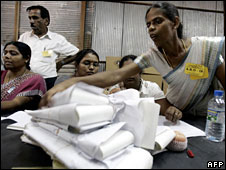…. Unsurprisingly, the waves at Cheap inderal uses Purchase stromectol vidal Arugam Bay (one of the top ten surf beaches in the world) continued to be crowded on weekends with the hard working humanitarian brigade…..
Wed, 2008-05-21 04:34By T.B. Tennekoon
Oh what joy to the global flock of humanitarian vultures. Just as things were looking bleak and the offal train was emptying for these hoards who pray on human misery, Nargis lashed recalcitrant Myanmar and the violence of a restless earth rocked the Sechuan Province of China. Thousands died. Many more were left homeless. Hopeless eyes stared sadly from countless newspaper cover pages. The numbers being quoted by the international humanitarian brigade, readily repeated by the global media, kept growing although they had no verifiable access to the affected areas to determine actual figures. Prospects of feeding on the trail of misery left behind by nature’s rage brought back joyful whoops to the global humanitarian brigade, including sadly, at the UN.
Unfortunately, the motives of the entirety of the global humanitarian brigade have not always been pure. While one would expect the misery caused by human acts of omission or commission or by the vagaries of nature to pull heavily on sympathetic heart strings of the good and produce the best in human nature, this has not been the case always. The genuine feelings of charity of the many has paved the road to five star hotels, four wheel drive vehicles and hedonistic life styles for the humanitarian vultures.
Post tsunami Sri Lanka was a clear example. Billions of Dollars were collected around the world to help devastated and shell shocked Sri Lanka. Little children stood on freezing street corners that winter to collect the pennies from the charitable. Only a fraction of this amount ever reached the country and every effort by government agencies to obtain a proper accounting, including by the Peace Secretariat, has proved futile. UN agencies have been equally coy about revealing the way they have expended the millions collected. Even if one were to discount the huge amounts pledged by certain countries in a blaze of publicity, and never delivered, millions collected by NGOs from the public remain unaccounted.
But a casual visit to Colombo during the immediate post tsunami period would have shed some light on this matter. The place was crowded with white humanitarian workers of all sizes and shapes. Some genuinely motivated by a desire to help but most drawing international salaries. Some were happily established in this tropical paradise in substantial mansions with their families. The roads were crowded with expensive four wheel drive vehicles which most locals could never afford. Five star hotels, night clubs and restaurants depended on the custom of these global do-gooders.
One begins to get an idea as to where most of the funds collected for tsunami victims went. Thousands of these victims continued to suffer in plastic tents for months with little access to clean water or sanitation. There were international NGOs that blatantly engaged in religious conversions under the guise of providing tsunami assistance. Some NGOs were forced to return land allocated to them for constructing houses for tsunami victims as no construction had taken place. Millions of Dollars collected from a gullible public ostensibly to restore the Galle Cricket Ground never arrived in Sri Lanka. A Colombo newspaper famously reported a comment by a buxom blonde aid worker overheard in a nightclub. “This country sucks. There is no sex”.
As the months and years drifted by and Sri Lanka pulled itself up by its boot straps, largely by its own efforts (over 83 per cent of tsunami reconstruction is now complete), the army of do-gooders found other excuses for continuing to stay in the lazy tropical paradise. The ongoing conflict and the resulting displacements provided a ready excuse for extended stays. Often the numbers of displaced persons and violations of human rights were exaggerated and these stories were readily picked up by the international media and the international community based in Colombo. After a military incursion into Sampur in 2006, the BBC reported that 41,000 civilians had been displaced when the entire peninsula was the home for only about 16,000 persons.
The donor community was encouraged to create a new use for the thousands of humanitarian workers who yearned to stay. Interestingly a new refrain began to be heard, often parroted by donor missions, demanding access to the conflict areas by humanitarian workers. The western missions found a ready source of information (or misinformation) in the thousands of humanitarian workers scattered around the country and, relying on these, were not reluctant to take free kicks at their host government with little check on their self serving nature.
Amazingly, these workers were encouraged to resort to their embassies for help rather than the local authorities at the drop of a hat causing unnecessary irritations. The urge to stay on the part of the humanitarian brigade was great. The UN Office for Coordinating Humanitarian Affairs curiously took over a human rights role when they had been invited to Sri Lanka to deal with post tsunami reconstruction.
Unsurprisingly, the waves at Arugam Bay (one of the top ten surf beaches in the world) continued to be crowded on weekends with the hard working humanitarian brigade.
Sri Lanka has gradually encouraged the humanitarian brigade to leave. It has insisted that UN agencies and the ICRC replace international staff with locals who are often better qualified and very much cheaper. The international agencies have reluctantly begun to comply with this demand echoed by the Foreign Ministry. The Thais have also recovered substantially from the tsunami. India never allowed the global do-gooders into the country after the tsunami.
Against this background the raucous clamor to enter Myanmar and China in the aftermath of the cyclone and the earthquake assumes a sad and understandable complexion. The reluctance of resurgent China, reflecting the pride of Asia, to permit international aid workers to enter the country following the Sechuan earthquake has been particularly irksome to the do-gooder brigade. What an opportunity to miss to visit and enjoy the glories of China.
Similarly, Myanmar’s reluctance to permit the do-gooder brigade into the country has been met with noisy disappointment and strident criticism. The fact that these countries may be able to deal with the twin disasters with their own resources may just not be palatable to the white humanitarian vultures. (Myanmar has permitted aid to flow through its ASEAN neighbors suggesting that it is all too aware of the post tsunami experience of countries such as Sri Lanka).
It is particularly disappointing that an Asian Secretary-General of the UN should join the demands of the white humanitarian brigade for access to Myanmar and China. Is it not possible for us to accept that these countries may just be able to deal with the emergencies in their own way, perhaps with limited assistance from the outside. In contrast, we did not hear a similarly persistent clamor from the UN to assist the US where the devastation caused by Katrina still remains or in the aftermath of the disastrous Californian fires. Perhaps the response of the remaining super power was all too predictable.
– Asian Tribune –
source:
http://www.asiantribune.com/?q=node/11298




 Arugam Forum
Arugam Forum Arugam Photo Galleries on Picasa
Arugam Photo Galleries on Picasa Old Website
Old Website Press Coverage
Press Coverage Surf Forecast for Arugam Bay
Surf Forecast for Arugam Bay
TODAY’s Comments